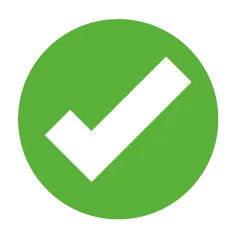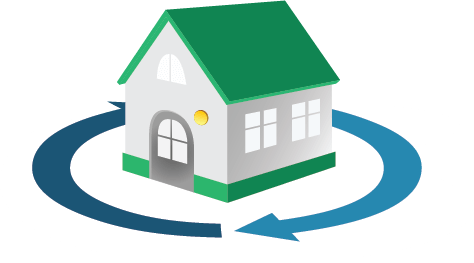FAQ'S
IS A REVERSE RIGHT FOR YOU?

WHY TO CHOOSE A CRMP?

Deciding to venture into a reverse mortgage is a major decision. When choosing whether one is right for you, qualified advice is invaluable; so too is selecting a Mortgage Loan Originator who is well versed in all aspects of reverse mortgages, not just doing one or two a year.
A Certified Reverse Mortgage Professional (CRMP) must adhere to strict ethical conduct. They must inform you of all the terms and conditions of the loan clearly and with the utmost respect of your needs and goals. They must not pressure or steer you into another type of loan or product, such as an annuity, that might not be in your best interest.
MYTHS AND FACTS

Myth: When you take out a reverse mortgage, you sign over ownership of your home to the bank.
Fact: Just like a forward mortgage, you remain on the title of the property. The lender simply has a lien, just like a regular mortgage. Now, you do need to meet the loan guidelines and requirements, such as paying property taxes, homeowners insurance, flood insurance, and homeowners association dues (if applicable), maintaining the property, and not being absent from the home for more than six months. With a forward mortgage, you need to make those all the same payments as well as the mortgage payment.
Myth: A reverse won’t leave any equity for your children.
Fact: The amount of equity may decrease over time with a reverse mortgage, but that doesn’t mean there will be no equity left when the last borrower dies. Home appreciation, length of the loan, and optional monthly payments are some of the factors that affect how much equity will be left. We can look at an amortization schedule and project how much equity will be left year after year, of course we can’t predict loan rates and appreciation, but we can get a basic idea.
Myth: Your children will be left with the mortgage when you die.
Fact: One of the awesome features of a reverse mortgage is that it’s a non-recourse loan. What this means is that the lender can only be repaid from the proceeds of the sale of the home, up to the value of the home. They can never go after your estate. Your heirs will not be responsible for the loan repayment, but they have the option to finance the home into their name and keep it, or to sell the home for maximum proceeds, pay off the loan, and keep the equity that remains.
Myth: You could be forced out of your home.
Fact: The HECM (Home Equity Conversion Mortgage) reverse mortgage was designed with the primary goal of enabling seniors to reside in their homes indefinitely. As long as the borrower fulfills their loan responsibilities, they won’t face eviction or foreclosure. These responsibilities include living in the home as their primary residence, consistently paying property taxes and homeowners insurance, and adhering to Federal Housing Administration maintenance standards. Failure to uphold these obligations can lead to a loan default, potentially leading to foreclosure.
Myth:
This will affect my Social Security and Medicare.
Fact: Government entitlement programs like Social Security and Medicare typically remain unaffected by a reverse mortgage.
However, need-based programs like Medicaid can potentially be impacted. To understand how a reverse mortgage might affect your eligibility for certain government benefits, it’s advisable to seek guidance from a qualified financial advisor.
Myth: I’ll have to pay taxes on the money I receive.
Fact: No, you will not have to pay taxes on the proceeds from a reverse mortgage since it is NOT income, but rather a loan. In fact, with coordinated planning between your financial planner and myself, a reverse mortgage can often be used to offset taxable events such as ROTH IRA conversions.
Myth: Reverse Mortgages are expensive and I have to pay a lot out of pocket.
Fact: Typically, most of the closing costs and fees from the lender can be rolled into the reverse mortgage loan. When it comes to the cost of the loan, it’s quite comparable to a standard FHA loan. However, when you consider the advantages that a reverse mortgage offers and the various purposes it serves, you’ll find that the benefits far exceed any associated costs with this loan.
Myth: You cannot sell your home if you have a reverse mortgage.
Fact: You can sell your home if you wish, you simply pay off the reverse mortgage at closing, just like any other mortgage loan. There are no prepayment penalties if you decide to pay off your loan or make loan payments.
Myth: A reverse mortgage is the same as a home equity loan or line-of-credit.
Fact: A reverse mortgage and a home equity loan/line-of-credit all utilize the equity in your home as collateral, but they also exhibit some differences.
Here are a few for instance:
1. While any homeowner can apply for a home equity loan, eligibility for a reverse mortgage typically requires the homeowner to be at least 62 years old.
2. Home equity loans usually necessitate monthly repayment over a period of 5 or 10 years, whereas a reverse mortgage typically remains unpaid until the homeowner either resides outside the property for a continuous 12-month period or passes away.
3. Home equity loans that offer no closing costs may come with a higher interest rate throughout the loan’s duration, while a reverse mortgage generally includes upfront closing costs but tends to have lower interest rates over the course of the loan.
ADDITIONAL FACTS

Reverse mortgages, particularly FHA-insured Home Equity Conversion Mortgages (HECMs), are backed by the Federal Housing Administration, providing protection for borrowers, lenders, and beneficiaries.
Prior to incurring any loan-related costs, borrowers are required to undergo HUD counseling, which is provided by an independent HUD-approved counselor.
While the cash or proceeds from a reverse mortgage typically don’t incur individual income taxes, it’s advisable to consult your tax advisor for personalized guidance.
To be eligible for a reverse mortgage, your home must be your primary residence.
A reverse mortgage is not a government grant; it’s a loan that must be repaid when the home is sold or the last borrower departs permanently.
It’s crucial to understand that reverse mortgage proceeds can impact government needs-based programs such as Medicaid and Medi-Cal, so consulting a professional is advisable for those receiving such benefits.
A reverse mortgage loan is secured by a mortgage on the home, and failure to adhere to the loan terms could lead to foreclosure. However, YOU retain ownership.
It’s important to note that program rates, fees, terms, and conditions may not be available in all states and are subject to change.
ADDITIONAL QUESTIONS

What are the eligibility requirements for obtaining a reverse mortgage?
In order to qualify for a reverse mortgage, you need to meet certain criteria. Firstly, you must be 62 years of age or older and be the owner of your home. Additionally, you must have equity in the property to pay off any outstanding balances, and the property must be your primary place of residence. During the qualification process, all applicants must undergo a financial assessment to assess their ability and willingness to fulfill their financial obligations.
What is the potential amount of money I could receive?
To determine the amount of money a borrower can receive from a reverse mortgage, lenders consider the borrower’s age, the home’s value, outstanding liens, and interest rates. The amount of money received is affected by existing mortgage payoffs, mandatory obligations, and payment options.
HUD limits borrowers to accessing only 60% of the available money (after closing costs and fees) in the first year. The remaining funds become available beginning in year two.
What are the options available to receive the money from a reverse mortgage?
Borrowers can receive the money from a reverse mortgage through several options, including a lump sum, a line of credit, monthly payments, or a combination of these. In the first year, the line of credit or monthly payments cannot exceed 60% of the Principal Limit. After the first year, the available line of credit or monthly payments may increase.
Do I need to receive counseling before obtaining a reverse mortgage?
Counseling with an independent third-party HUD-approved counselor is required before obtaining a reverse mortgage to protect borrowers from incorrect information about the loan. The counseling certificate must be received by the lender before closing the loan.
Is the money I receive from my reverse mortgage subject to taxation?
While the proceeds received from a reverse mortgage are usually not subject to individual income taxation, borrowers should consult their tax advisor.
RESOURCES

The Consumer Financial Protection Bureau (CFPB) Consumer Lookup
http://www.nmlsconsumeraccess.org/
Housing Counseling Clearinghouse
Phone: 1-800-569-4287
The Eldercare Locator: Local Resources for Older Adults
http://www.eldercare.gov
Phone: 1-800-677-1116
Federal Trade Commission (FTC) to report possible fraud
http://www.ftc.gov
Phone: 1-877-FTC-HELP (1-877-382-4357)
National Council For Aging Care
http://www.aging.com
Phone: 1-877-664-6140
AARP free information on reverse mortgages
Phone: 1-800-209-8085

